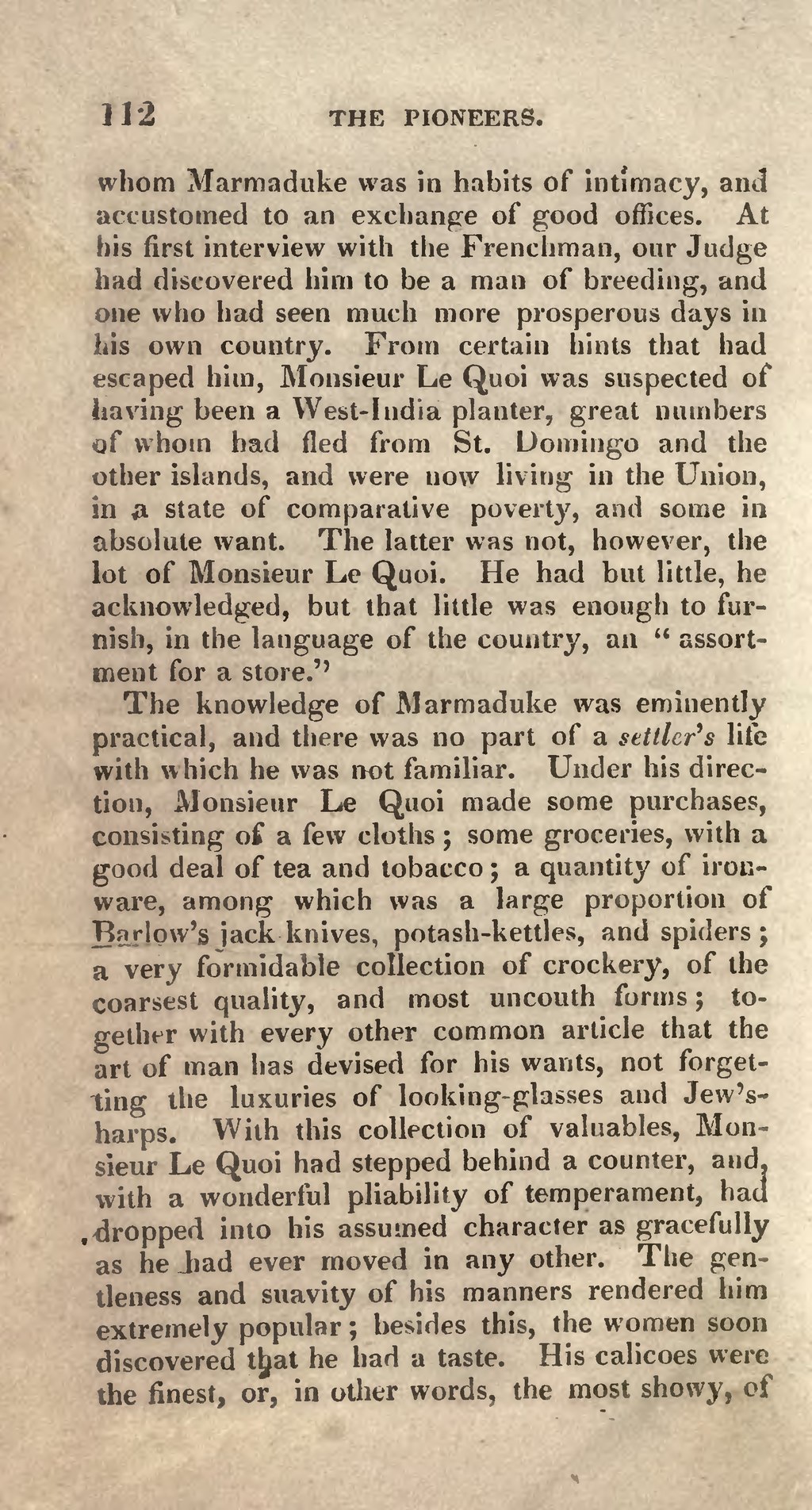whom Marmaduke was in habits of intimacy, and accustomed to an exchange of good offices. At his first interview with the Frenchman, our Judge had discovered him to be a man of breeding, and one who had seen much more prosperous days in his own country. From certain hints that had escaped him, Monsieur Le Quoi was suspected of having been a West-India planter, great numbers of whom had fled from St. Domingo and the other islands, and were now living in the Union, in A state of comparative poverty, and some in absolute want. The latter was not, however, the lot of Monsieur Le Quoi. He had but little, he acknowledged, but that little was enough to furnish, in the language of the country, an "assortment for a store."
The knowledge of Marmaduke was eminently practical, and there was no part of a settler's life with which he was not familiar. Under his direction, Monsieur Le Quoi made some purchases, consisting of a few cloths; some groceries, with a good deal of tea and tobacco; a quantity of ironware, among which was a large proportion of Barlow's jack knives, potash-kettles, and spiders; a very formidable collection of crockery, of the coarsest quality, and most uncouth forms; together with every other common article that the art of man has devised for his wants, not forgetting the luxuries of looking-glasses and Jew's-harps. With this collection of valuables, Monsieur Le Quoi had stepped behind a counter, and, with a wonderful pliability of temperament, had dropped into his assumed character as gracefully as he had ever moved in any other. The gentleness and suavity of his manners rendered him extremely popular; besides this, the women soon discovered that he had a taste. His calicoes were the finest, or, in other words, the most showy, of
